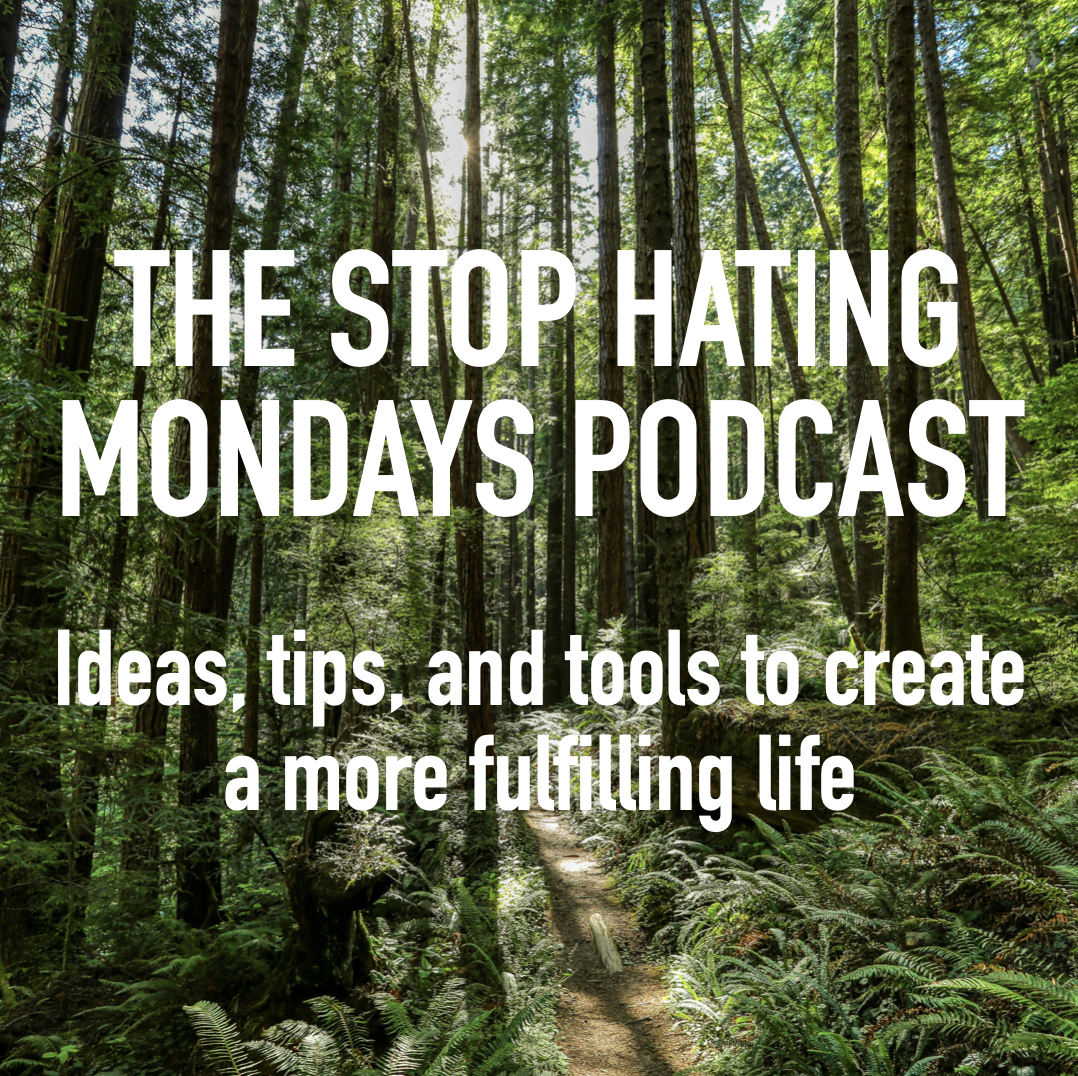What Companies Are Doing To Keep Their Best Employees (And Why It Matters To You)
Kent R.
As employee advocates, we can be hard on companies. It’s okay, they can take it. But the reality is that – in the face of the great resignation and this still hot employee market – a lot of companies are taking very positive steps to retain talent. And that’s a good thing for everyone.
On this episode of the Stop Hating Mondays Podcast, we’re talking about some of the specific things companies are doing and what it means for both existing employees and job seekers.
TRANSCRIPT
(Transcripts are auto-generated and may contain minor errors)
Caanan
As employee advocates, we can be kind of hard on companies.
It's OK, they can take it.
But the reality is that in the face of the great resignation and the still hot employee market, a lot of companies are taking really positive steps to retain talent. And that is a good thing for everyone.
On this episode of the Stop Hating Mondays Podcast, we're talking about some of the specific things companies are doing and what it means for both existing employees and job seekers.
Caanan
Last season we talked a lot about the great resignation and what company should be doing in this still unprecedented job market.
Well, we got this question from Fazil who asks “given how many opportunities there are right now, I think my company should be doing more to keep me and other members of my team. What do you see as best practices when it comes to retaining people?”
Kent
I I love this question because, over the last year, the definition of the great resignation and all of this has started to change, and it's like every time we're getting a question about this – many we've addressed on the podcast – we're sort of shifting people’s perspective.
Because of our role were on the front end of hearing… well, the Great Resignation isn't so much that it's more this… It's more boomers near retirement age, retiring early – and things that aren't as straightforward. Sort of middle-income earners, the largest part of the job market quitting and getting different jobs.
So here again I want to start by saying things aren't exactly how they seem. So companies know, and now you know, by the time you hear this, you know that not only are we living with really high inflation, but there's a great worry that a recession is coming.
Yeah, so traditionally in times of recession – decades old business wisdom here – companies will start to eliminate jobs because it's just seen as something that has to be done to keep costs / spending under control.
So, what we currently view as the great resignation is the landscape of that is looking much different now. But even so, to answer Fazil’s question, companies are doing a lot of things and despite that – you know, you and I talk a lot about how things really are cooling off – despite the things are cooling off, companies are, for instance, offering pay raises to employees, and they're offering a lot of promotions.
In fact, I just read this.
It's about a recent survey from the consulting firm Pearl Meyer. 1/3 of more than 300 companies are planning on considering rare midyear raises for top performing employees. Most companies award raises at the beginning of the year. The biggest reasons for the off-cycle boosts to retain employees and counteract inflation. The survey also found that average salary increases hit a 2-decade high, 4.8% this year.
So that's the direct answer to Fazil’s question, so talking about it – I like that he used the phrase best practices, that's a phrase we like to use a lot – the core mission of these companies should be to keep the people they have.
So pay raises and promotions work well. Interestingly, you and I are seeing a lot of promotions to niche roles and this is very exciting too. So the strong employee who's been in this sort of, say, generalist engineering role, has for years been making the case for this niche engineering role. Well, the company’s decided “let's create this niche engineering role for this person that will keep them happy in here.” Because if we don't do this, they will likely leave. So things like that are good for not only the employee but good for the company, because they're taking a chance, and in this case expanding a department or growing in a way that's going to mean they have exciting growth that eventually reaches the consumer and hopefully that pushes everything forward.
So things like that are very exciting.
Caanan
And for those employees who are getting promoted into these more niche roles, it's exciting because they're getting to focus on aspects of their career that are most interesting to them.
So not only are they retaining these people, but they're putting these people in these roles where they're going to be even more fulfilled and hopefully able to add even more value to the company. So it really is a win win.
And I I have a question for you coming up, that's going to show that it might be a win win win.
Kent
Yeah, well, let me just say to that we always in our podcasts… I can't think of a time where we're not referencing other podcasts and it's so great, you and I work very hard to keep things very tight so everything relates to everything else. We give a lot of this same kind of advice. That's because we want to keep things simple and what you said just made me think of the fact that one of the things employees want, they want to feel like they're growing. And what better way to help an employee feel like they're growing than to help them create a niche position where they really feel like they'll thrive, they'll add value to the company, and they'll be growing themselves.
Caanan
Okay, so I said I'm just going to ask you a question that may show how people getting promoted to niche roles could be a win win win.
So, here goes.
What does this increased focus on retention and this move to get people into more fulfilling niche roles – what does it mean for job seekers who are trying to get into a company?
Kent
Yeah. Insert a lot of what we just talked about for this question, meaning that how things appear to job seekers are not necessarily the reality of what's going on inside. So, for instance, job seekers are seeing all these amazing jobs. Well, oftentimes what you referred to as the niche titles, they're going to people who are inside the company. And most companies still have a requirement where you have to – or where they choose to –
advertise open positions to the broader public., but clearly the most qualified candidate for X niche position is going to be this person inside the company.
So job seekers reality applying is much different than you think it is.
It's not this free for all sort of free for all like “I'm going to apply for this job and I know I'm going to get it!” But what's happening is what we call the tentpole positions are really the places where job seekers are seeing success, so people – this is very broadly speaking, but – people in the current tentpole positions are getting promoted out of those, because X company wants to retain talent. Those are the roles that outsiders or job seekers are more likely to be recruited into at this time.
So yeah, I think you're saying it helps the company, it helps current employees because they're getting promoted to something and it helps, and thirdly, job seekers who are then able to get into this company that they want to work for.
Caanan
Yes, and I think it's… I just wanted to throw in an example that we're seeing a lot of now so that listeners can maybe relate to this easier.
So, because a lot of the work we do, we see our positions – open our positions – so there is a glut of DE&I or DEIB positions opening up and they're very exciting positions because they're kind of niche and a lot of the people we work with are excited about those roles.
What we're discovering, though, is that those niche DE&I / DEIB roles are going to internal employees, internal employees who are getting promoted into those roles.
And really, what's available are the HR business partner roles and the HR director roles. So there's more tent pole – as you called it – HR roles or whatever, to external employees.
Kent
Exactly, and that's a great example.
And you know those are great places to start. Those roles that there's usually many, many, many of within a company. And then, hopefully, you getting one of those roles can be a person who down the road moves into something else.
I think the big idea here though, is that in all these cases, internal employee wanting to do something different, external employee applying – things aren't exactly as they might appear to you.
Caanan
I know we talked about this last season, but do you think companies are successful in their response to the great resignation?
Kent
Yeah, it's a mixed bag. I think I'd answer this like I'd answer most any other question.
Yes and no.
Companies that are a mess are typically still a mess. And probably even more so with all these changes with the pandemic.
The shift to hybrid work or entirely remote work dealing with the Great Resignation, so there's a lot of fumbling a lot of ridiculous responses to the great resignation, but of course, and – here too we've mentioned this in previous podcasts – there are companies doing the right thing. Companies really measuring how well they're changing their culture. Most specifically to match what is going to keep employees happy and wanting to stay there.



